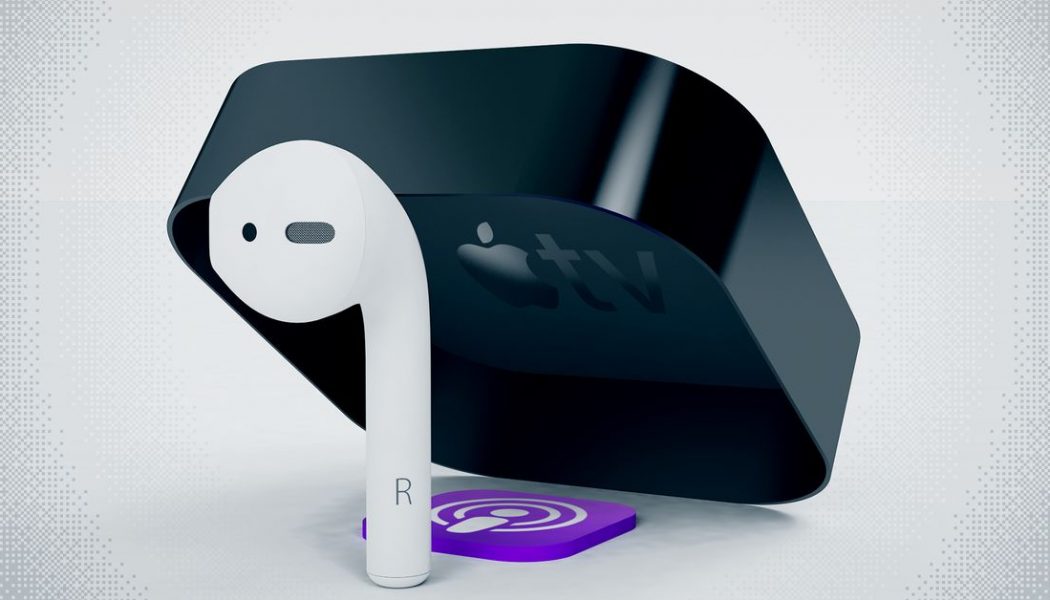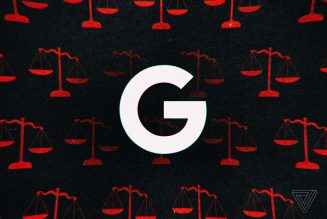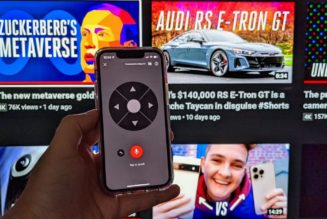
The podcasting world’s been waiting and watching for Apple to debut a full-blown revenue-producing podcast business. Spotify and other tech giants have been making moves in the space — signing exclusivity deals, acquiring companies, and generally trying to dominate the market. Yet, Apple has stayed mostly quiet, despite operating one of, if not the most, popular podcast apps on the market. Recently, however, it’s started to dabble in creating its own shows.
This week, Apple premiered a new investigative nonfiction podcast looking at US Navy SEAL Eddie Gallagher, who was charged with committing war crimes. The show, called The Line, serves as a complementary but separately reported program to a forthcoming Apple TV Plus show of the same name.
Anyone hoping this might signal Apple’s broader interest in building its own podcast content was likely disappointed. Although The Line represents a step toward Apple creating its own shows, it doesn’t dive the company head-first into the podcasting waters. Instead, the company’s dipping its toes in, relying on podcasts to promote its subscription programming rather than using podcasts as a moneymaker themselves.
Apple’s strategy continues to grow around these companion shows. Earlier this year, it premiered For All Mankind, a podcast to complement its TV show of the same name, and it created a companion show for the Oprah Book Club in partnership with Apple Books. It also plans to launch a show in coordination with the premiere of The Problem With Jon Stewart, another Apple TV Plus series coming this fall. Instead of a full-throated proclamation that Apple wants to build a business around podcasting, we’re instead seeing Apple use audio to push podcast listeners toward its moneymaking subscription service TV Plus, as well as its a la carte book-selling app Books. Basically, Apple is playing it safe and avoiding a full commitment to podcasting, which, as of right now, doesn’t make it money.
These companion podcasts instead serve as a marketing tool to capture potential audiences in new places. Maybe some dedicated podcast listeners missed Apple’s promotional push for The Line, but instead spotted the program in a show carousel on the main Apple Podcasts page. If they listen, they then might want to subscribe to TV Plus for The Line’s streaming premiere, and Apple gains a $4.99-per-month subscriber.
This doesn’t mean Apple won’t eventually build a way to make money off podcasting. The company’s been rumored to be getting into the podcast game more deeply and is reportedly working on a paid podcast feature. Currently, however, Apple doesn’t support any sort of revenue-producing functionality in its podcast app, like tipping, subscriptions, or exclusive content gating. For comparison, Spotify, Apple’s biggest player competitor, is testing subscription Anchor podcasts and offers a premium subscription tier. It also sells ads against its own podcasts and inserts additional ads into free users’ streams, giving the company a number of ways to profit off shows. Apple will likely never look to advertising as its main revenue driver for podcasting. The company’s taken a firm stance on user privacy, and targeting podcast ads would cross that line.
It could, however, start charging for podcast content or, instead of launching a podcast in coordination with an already created TV Plus show, use its original podcasts as a launching pad for future series. If a show does well as a podcast, Apple itself could greenlight the idea into a TV production, further driving revenue. This is already a podcasting business strategy. Shows like Serial and Homecoming started out as successful podcasts that were then turned into video programming.
Other video streaming companies have pulled from a similar podcasting playbook. HBO and Netflix both create companion content for their shows, which not only encourages viewers to spend more time with the company’s programming, but also reaches a different audience, one that might be enticed to subscribe just because of what they heard on a podcast. The difference between those companies and Apple is their lack of podcasting infrastructure. They don’t have a player themselves, so there’s less opportunity to build a business around original shows.
Apple has multiple one-ups on these other streaming services. It already owns the space where a large portion of people listen to podcasts, and it offers a variety of content subscriptions for games, TV shows, fitness, and more, including a bundle. Building the technology to support paid podcasts is one of the last steps to structure the business — it’s that and believing podcasting could actually become a real revenue driver all on its own.










